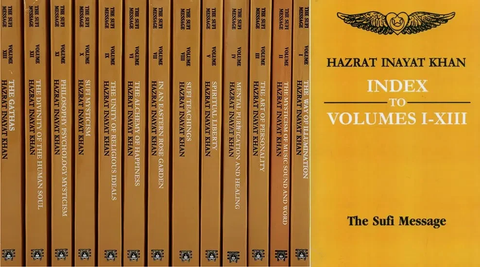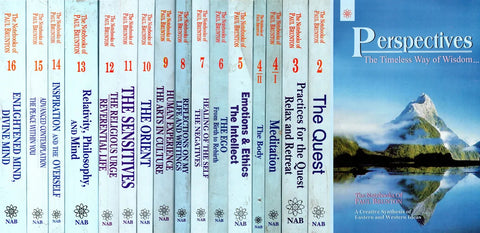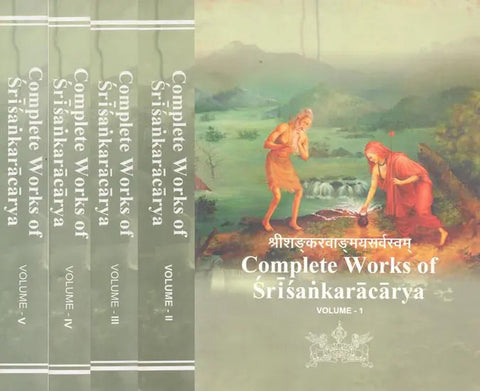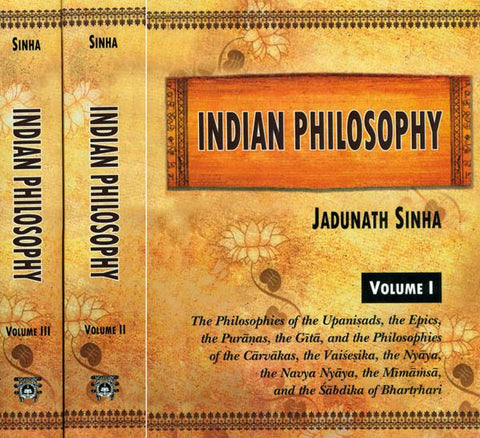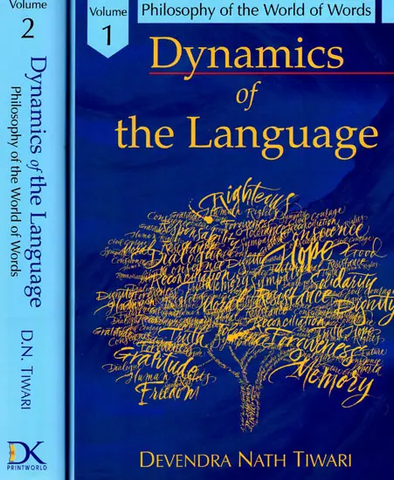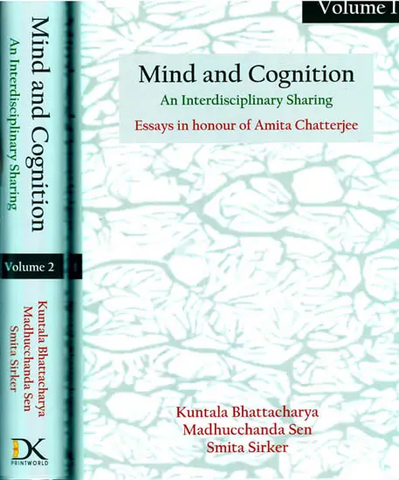Your cart is empty now.
The purpose of this book is to throw some light on the originality of the Concept of Samskara in which ritual, psychological, and philosophical aspects are intermingled. Keeping in mind the various implications of the word in the Hindu Darsanas as well as in Buddhist thought, some relevant comparisons are drawn with Western Philosophy and Psychoanalysis.
A review of texts and contexts shows that in domains as different as Rituals, Anthropology, Logic, Epistemology, Psychology, Ethics, and Soteriological Philosophy, the concept of Samskara works like a universal key in the mind of Indian authors. The enquiry in this book based on Sanskrit and Pali texts helps to discern its denotation, connotation, and evaluation.
The word Samskara applies not only to the Hindu Life-cycle perfective rites which imprint the psyche but also to all sorts of "psycho-physical compositions", dynamic traces and tendencies, predispositions, habits, and traits of character. These morally qualified residual impressions: bodily, vocal, and mental, cause memory and dreams, condition and encumber the psyche or subtle body. Although beneficial on the pragmatic level, present in instincts till refined intelligence, samskaras are considered to be obstacles in the path of deliverance (moksa), especially when, appear as blind urges or unconscious drives. Hence the role played by samskaras, (explaining the inexplicable), in the enigmatic psycho-cosmological register of the Law of karma and the doctrine of samsara. Yoga-born anti-samskaras, traceless indeed, help in de-conditioning and dis-encumbering the psyche. The book concludes that samskaras are factors of cohesion, liaison, intelligibility, mediation and continuity in space and time, mainly, factors of bondage and release.
Mr. Lakshmi Kapani Docteur es lettres et science humaines (Parissorbonne 1987) is (Emeritus) professor of Indian and comparative philosophy at the paris X-Nanterre university.
Lakshmi Kapani’s The Philosophical Concept of Samskara is the finest book of its kind on this fundamental notion emphasizing the interrelatedness of its ritual, psychological and philosophical aspects.
The aim of this work has been to present the originality of the concept of samskãra. The work is, in fact, a comprehensive survey of this concept based on all textual references, starting right from the Veda to end up with the classical darsanas, especially in Vaisesika, Vedanta, and Sämkhya Yoga. Passing through the Grhyasutras and Dharmasastra was not less important because of the impact of rituals on the psychological level of the human mind. The topics taken up are indeed an in-depth study of each problem she has chosen. She has been successful in highlighting the differences between the Buddhist attitude and the Brahmanical attitude towards samskara. All the conclusions of the author are authenticated by quoting relevant texts from the respective commentaries. This has enhanced the authenticity of this work.
Moreover, Lakshmi Kapani has included valuable comparisons with Western Philosophy and Psychoanalysis. No other work known to me gives so complete a critical appreciation of the similarities and dissimilarities between Psychoanalysis and Yoga. She has particularly shown how the yogin can overcome the propensity of the subconscious impressions by creating true yogic samskara which leads to deconditioning of the mind till mental formations simply get burnt up in the fire of Yoga.
First published in French this original and irreplaceable book has unfortunately been not widely circulated in the Anglophone world including India and an English translation was therefore urgently needed.
The philosophical quest about the concept of samskara arose in my mind while listening to my mother, in everyday talk, especially while looking for a future suitor for one of her daughters, the first question that she used to put to people in her circle was, do you know something about the samskaras of this person?” This set phrase, a current cliché was easily understood by everybody and called for no further explanation.
Yet, after serious reflection, the meaning and scope of this word appeared to me to be so rich and complex, clear and obscure, that I undertook a study of this concept based on Brahmanical and Buddhist texts. The object of my enquiry is to understand to what extent the word sarnskdra is univocal or equivocal, multivocal and over-determined.
Indeed, on the one hand, the question about the young man had obviously a psychological meaning—what are his tendencies, habits, traits of character, and bent of mind? What sort of behaviour can be expected from his side? In this sense, it was a question that anybody could put in any other family, culture, or country.
On the other hand, and at the same time, it was full of other implications that could only be understood in the context of Indian culture and civilization (bhãratiya samskrti), precisely, in relation to one's socio-religious duties during a particular stage of life (varnasrama dharma). Speaking about an eventual partner, this meant—what is his socio-religious status and family background? To which community, group or tradition does he belong to? What sort of education has he received? What are his personal qualifications and qualities? These two intimately linked personal and social dimensions can be summarized in the following manner— what sort of man is he? This question is all the more pertinent when one knows that sat samskara covers both conscious and unconscious tendencies of our psyche: past, present and future.
The extreme amplitude and diversity of the concept obliged me to leave aside the Tantra. and the Agama literature, as well as the Jaina texts. I have mentioned, in the last part of Chapter II, five Vaisnava-samskara, necessary for “initiation”; ten samskaras conferred to a mantra (Saradatilaka Tantra); and the atma-samskara of the Saiva tradition (Soma Sambhu Paddhati), necessary for niroaziadik ca; so very different from the i.aflra-sar1sskaras of Grhyaand Dharmasütras.
To my knowledge, the concept of samshara, in its ritual, psycho-moral, or epistemological dimensions, has not received an independent explanation or elaboration in early Jaina literature, It was rather treated under the head of other major pan-Indian concepts such as karman (“act”, “deeds”), vàsanã (“latent desire”, “impregnation”, “residual impressions” of acts and experiences), lesya: “colouration”, material and spiritual, (dravya- and bhava-lesyã), kasãya (“passion”), etc. In any case, the subject requires a supplementary study.
Three broad areas of my survey are—1 Brahmanical and Hindu ritualistic texts (Chs. I-Il). 2. Buddhist texts (Ch. III). 3. Philosophical systems or darsanas (lit. “views”, Points of view on the reality), Chs. IV-VIII, followed by Conclusion. Hence, my enquiry into the concept of samskara reveals a threefold interest—relative to cultural and religious anthropology, psychology and ethics, epistemology and philosophy. The whole work is a testimony of the cultural heritage of India in its opening towards Western thought.
My investigation goes back first to the use of samskar abhisamskr- in the Brahmañas, where they are closely related to sacrificial activity (yajna, karman). From a historical andmphilosophical point of view, it should be reminded that the noun samskara is not attested in the Sruti. In its psycho-moral, philosophical and epistemological acceptations, the noun appears for the first time in the Buddhist Pall Canon (samskara. Abhisamkhara). As to the adjectives samskrta, asamskrta (Pall samkhata, asamkhata), they are found since the Rg Veda, and throughout the history of Brahmanical, Buddhist and Hindu literature.
Explanations and justifications are furnished as to why one and the same translation for samskr-, abhisamskr-, samskara, abhi-samskara, samskrta, abhisamskila cannot always be maintained in Brahiuanical, Buddhist, and darsana contexts.
The present book offers the quintessence of my previous major publication in French La notion tie samskara dans lnde brahmanique et bouddhique, fascicule 591592, College tie France / Institut de Civilisation Indienne, Paris, Edition Diffusion De Boccard, 1992—93, 600 pages. I am grateful to Professor Gerard Fussman, College de France, who gave me his kind permission for the publication of this English version, as I am to Shri Narendra Prakash Jam, Motilal Banarsidass Publishers, Delhi, India, who warmly greeted the same.
| Foreword | VII | |
| Preface | XVII | |
| Abbreviations | XXI | |
| Chapter I: The Philosophy of sacrificial act | 1 | |
| 1 | The verb samkr-in the brahmana: mythical ritual and symbolic dimensions | 1 |
| 2 | The ritual making of the sacrifice self | 3 |
| Chapter II: Representation of the Hindu life cycle | 9 | |
| 1 | Introduction | 9 |
| 2 | Human life-cycle rites | 11 |
| 3 | Invocation and propitiation of divinities | 18 |
| 4 | Fortifying the delicate Passages | 20 |
| 5 | Instituting and sacralizing human relations | 22 |
| 6 | Samskara and adhikara | 24 |
| 7 | Continuity of generations | 27 |
| 8 | Samskara and dharma | 29 |
| 9 | Vaisnava and saiva-samskaras | 30 |
| Chapter III: The Buddhist attitude towards samskaras | 33 | |
| 1 | Introduction | 33 |
| 2 | Samskara is the fourth appropriation group and as the second link | 37 |
| 3 | Samskara is the second link | 42 |
| 4 | The dialectics between conditioning and de-conditioning | 49 |
| 5 | Samskara samkrta asamkrta in nagarjuna's madhyamaka karikas | 52 |
| 6 | The unconscious (Mind ) in Buddhist texts | 58 |
| Chapter IV: Samskara in vaisesika thought: Mechanics and Psychology | 71 | |
| 1 | Three kinds of phenomena | 71 |
| 2 | Mechanics of propulsion and impulsion | 71 |
| 3 | Definition of elasticity | 76 |
| 4 | Psychological Theories of vaisesika philosophy | 76 |
| 5 | Samskara as factors of prolongation in space and time | 80 |
| 6 | St. Augustine and the vast palaces of memory | 80 |
| 7 | Synoptic Tables 1 and 2 | 82 |
| Chapter V: Role of Samkaras in theories of Language | 85 | |
| 1 | Word phonemes and verbal knowledge | 85 |
| 2 | Samskara and sphota | 86 |
| 3 | Dialogue between varna-vadin and sphota-vandin | 87 |
| 4 | Some parallels with the west | 88 |
| Chapter VI: The advaita vedanta theory of Samskaras | 91 | |
| 1 | Sankaracarya's contribution to samskara | 91 |
| 2 | Previous acquisitions in the context of the law of karman | 100 |
| 3 | Previous acquisitions are helpful | 107 |
| 4 | Positive aspects of latent impressions | 119 |
| Chapter VII: The bhava/samkara theory in the samkhya karikas | 131 | |
| 1 | The word samskara in the samkhya karika | 131 |
| 2 | The receptacle of the bhavas is the Buddhi | 134 |
| 3 | Other two directives of the theory of eight Bhavas | 140 |
| 4 | The subtle body and the psycho-moral predispositions | 141 |
| Chapter VIII: Ambivalence of samskaras in the yoga sutras of patanjali | 147 | |
| 1 | The concept of samskara in the eight sutras of Patanjali | 147 |
| 2 | Sapience-made and residual impressions of emergence | 149 |
| 3 | Three kinds of suffering | 150 |
| 4 | Residual impressions of emergence versus residual impressions of suppression | 152 |
| 5 | Extraordinary of supra-normal power | 153 |
| 6 | Samskara smrti, vasana | 154 |
| 7 | Two facets of samskaras positive and negative | 155 |
| 8 | Samskara and adhikara | 158 |
| 9 | Difference between asamprajnata and nirbija-samaadhi | 159 |
| 10 | Yoga and psychoanalysis | 162 |
| Conclusions: Philological and historical issues | 167 | |
| Bibliography | 179 | |
| Indices | 207 |
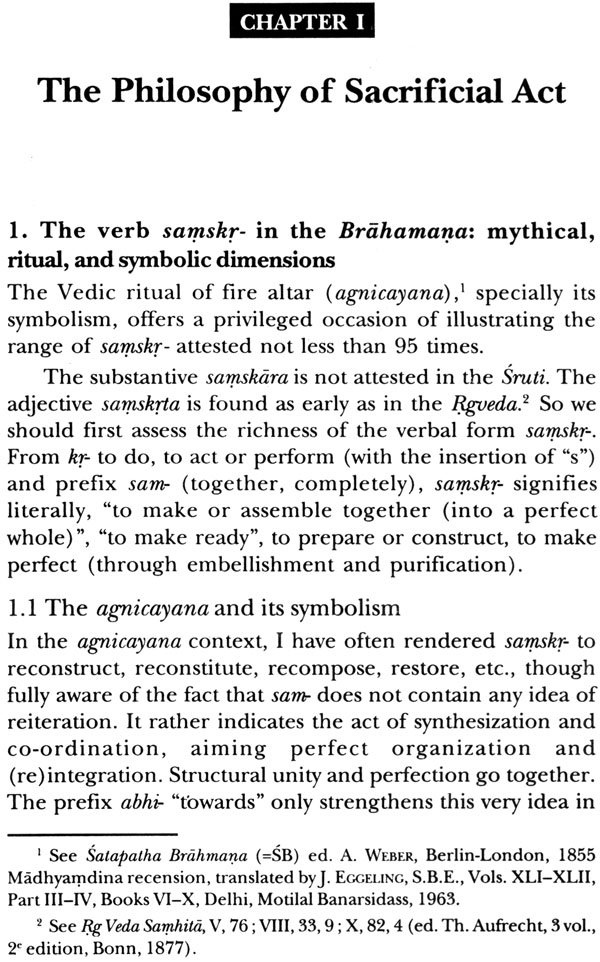
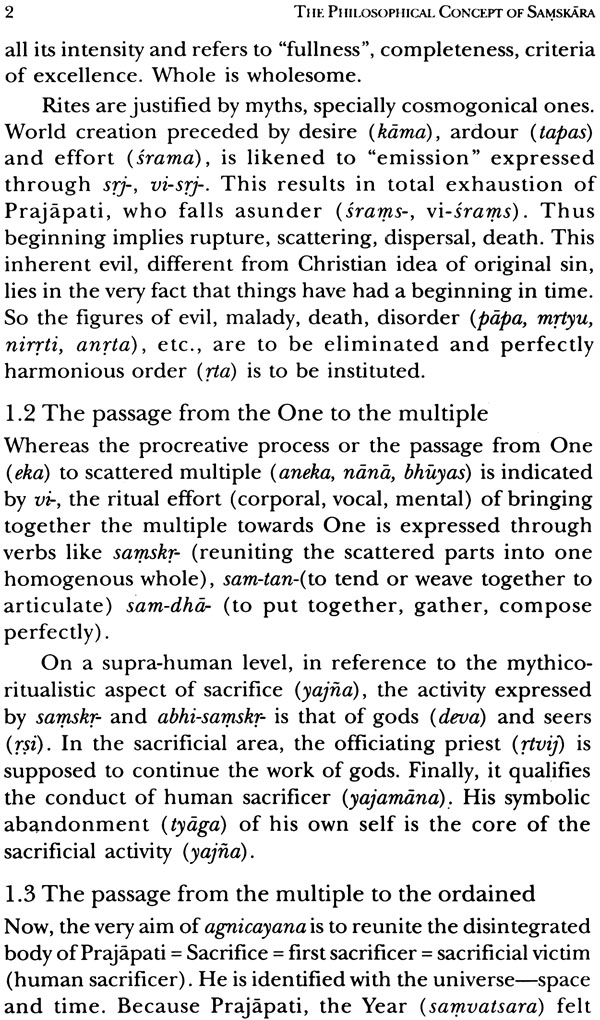
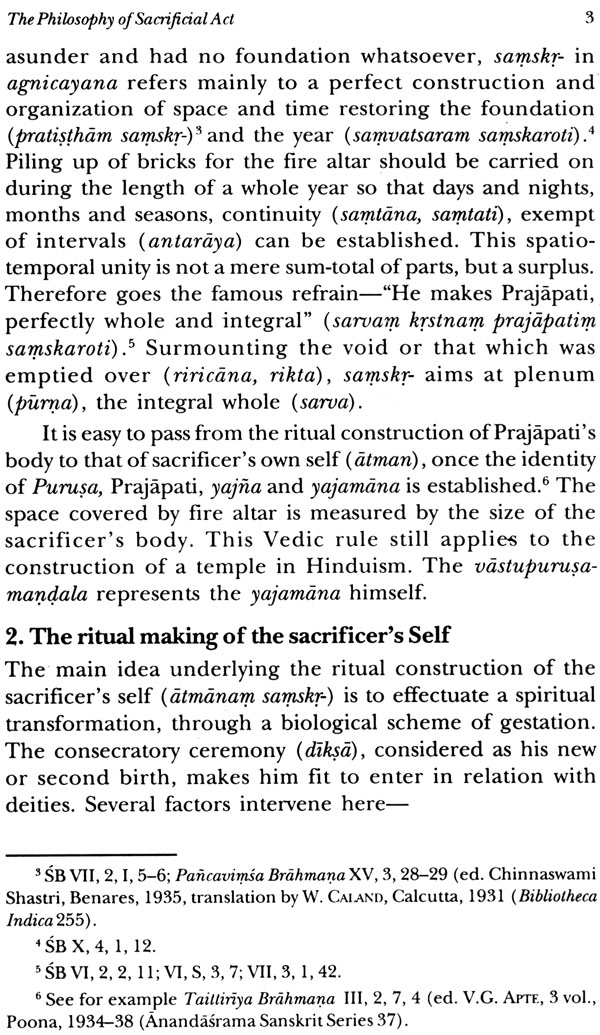
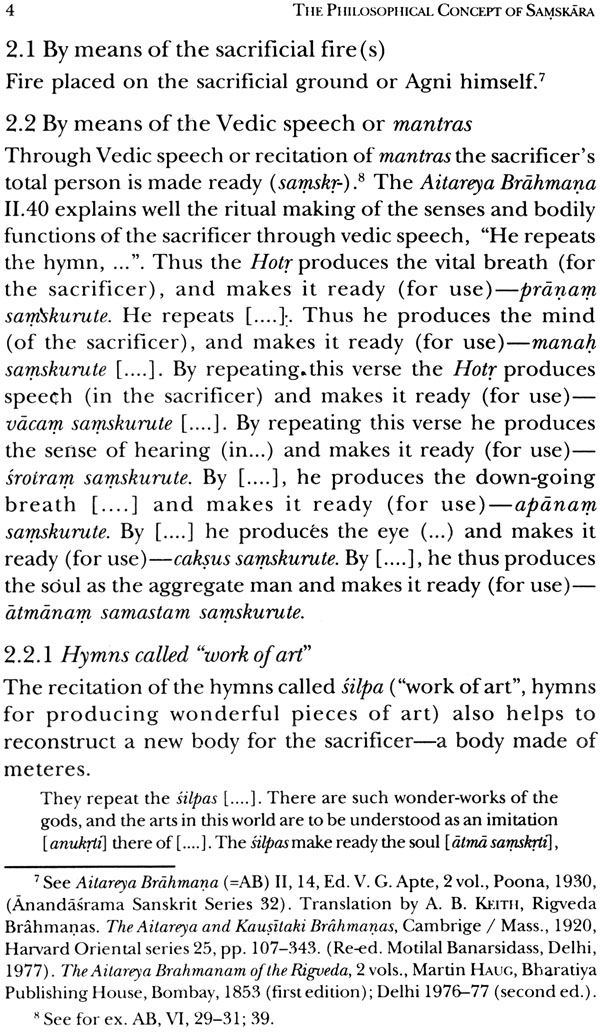
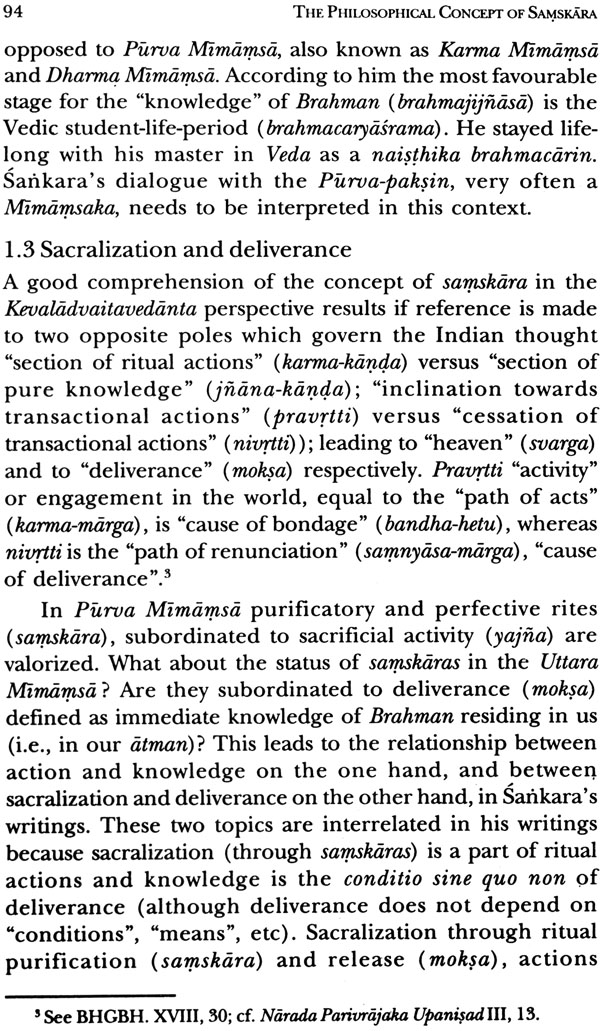
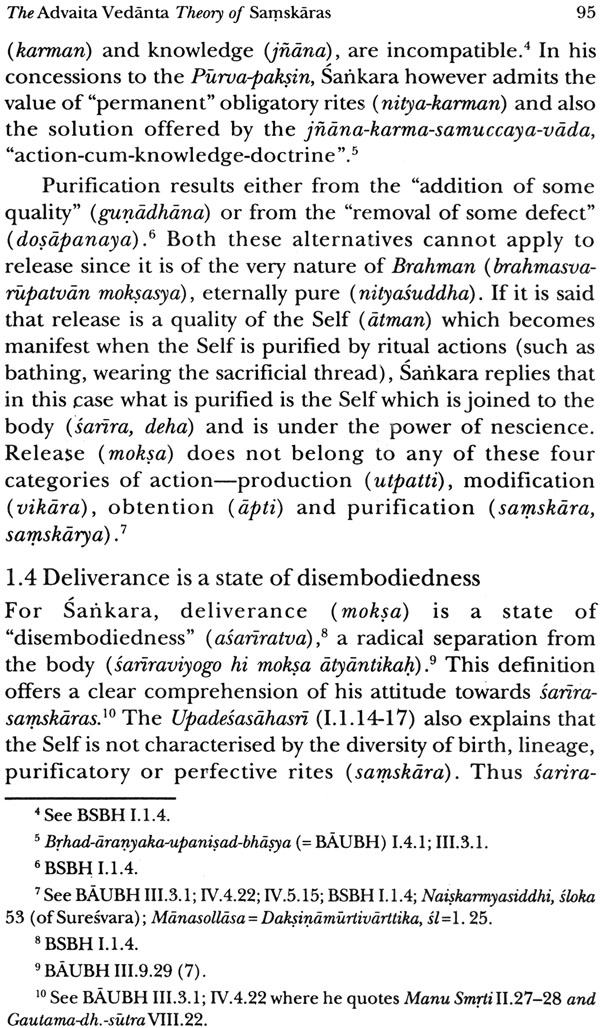
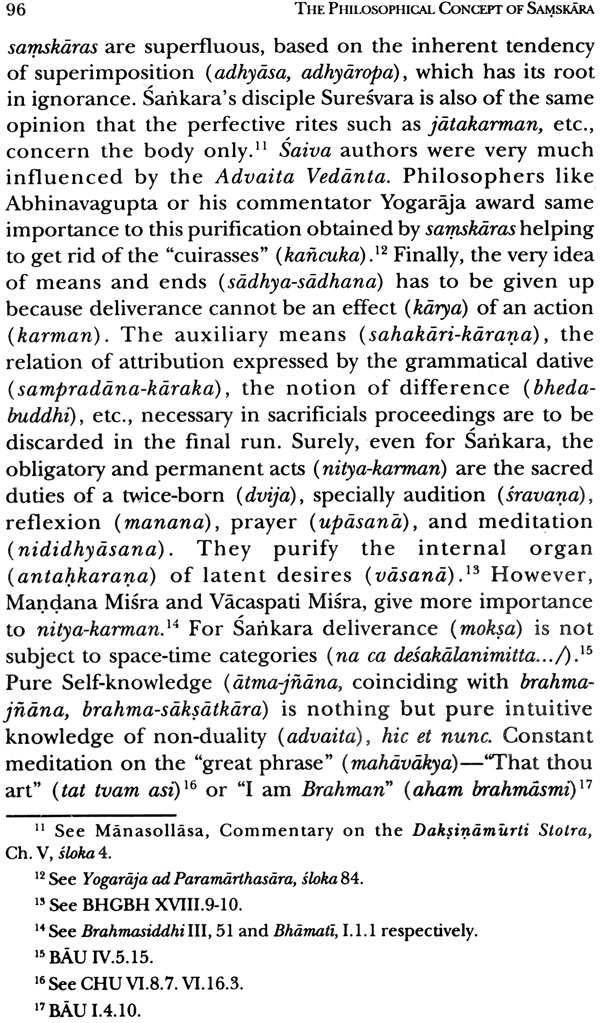

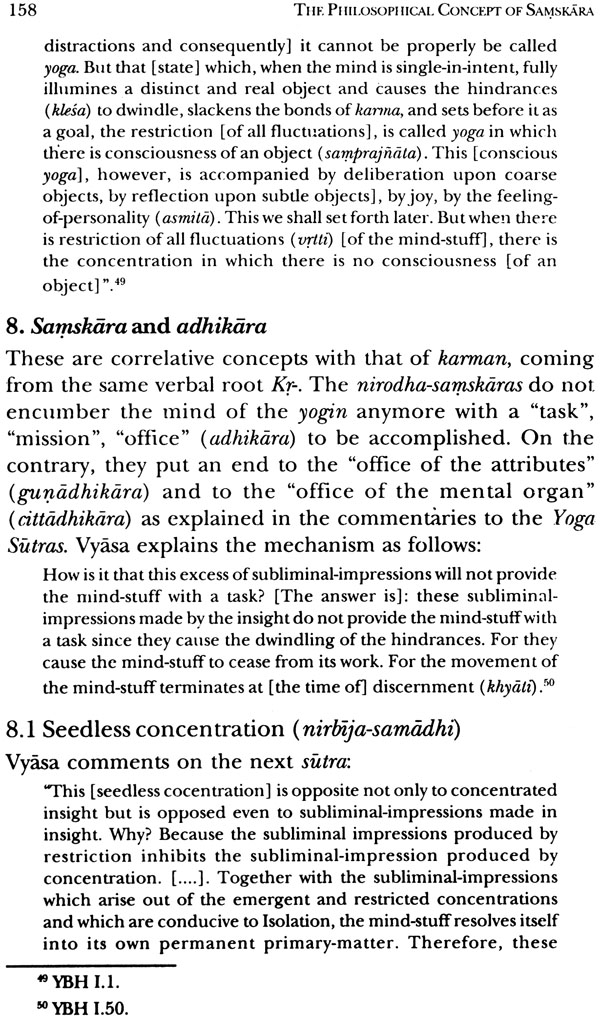
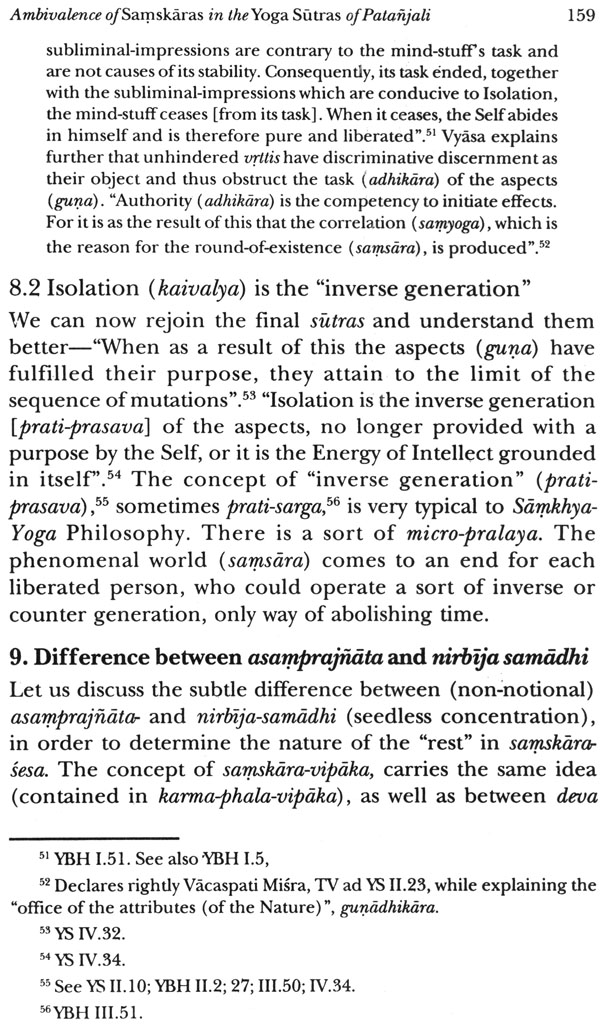
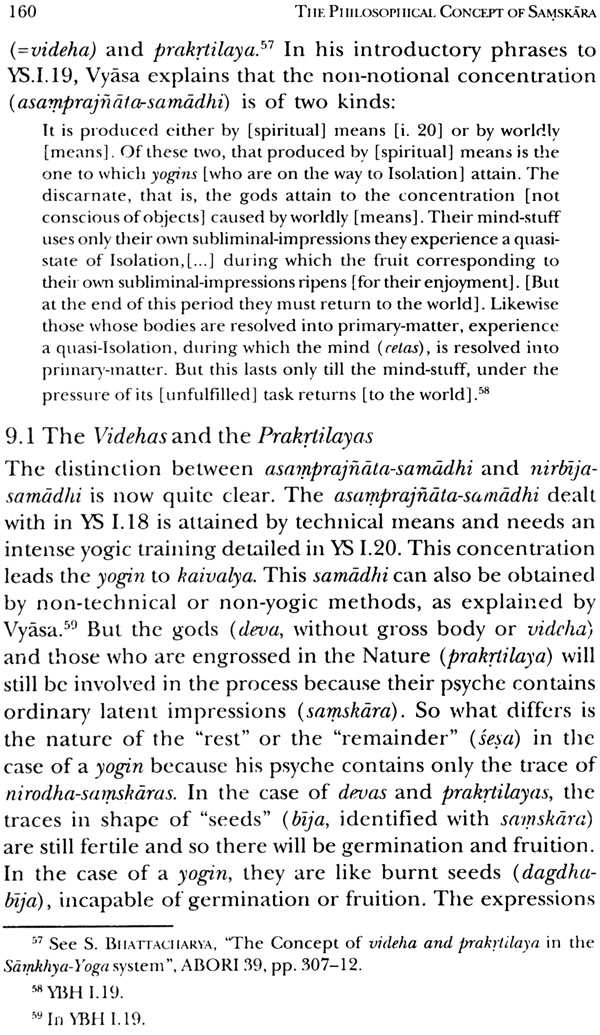
Delivery and Shipping Policy
- INTERNATIONAL SHIPPING
- Rs.1000-1100/kg
- ESTD. Delivery Time: 2-3 weeks (depending on location)
- Bubble Wrapped with Extra Padding
- NATIONAL SHIPPING
- NCR: Rs. 30/half kg
- Standard: Rs. 80/half kg
- Express shipments also available on Request
- ESTD. Delivery Time: Ranging from 1-4 days up to 7 business days (Depending on your choice of Delivery)
- TRACKING
- All orders; national or international, will be provided with a Tracking ID to check the status of their respective orders
- Depending on the Shipping Service, Tracking ID may be used on their respective tracking portals
Frequently Asked Questions (FAQs)
Domestic Shipping: 3-4 Days (after shipping)
International Shipping: 1-2 weeks (based on your location)
You will receive an email once your order has been shipped or you can email us if you didn't receive tracking details (info@mlbd.co.in)
Every book that we sell is the latest edition except all the rare books
Yes, we do provide free shipping, only on domestic orders (within India) above Rs.1500


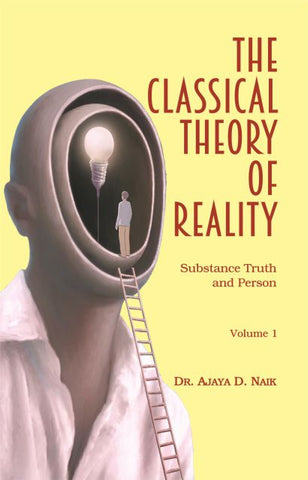
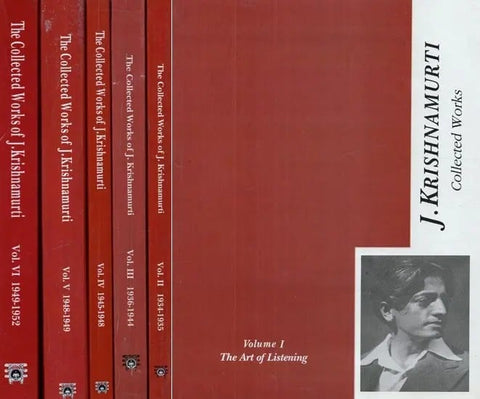

![A HISTORY OF INDIAN PHILOSOPHY [5 VOLUMES] by Surendranath Dasgupta](http://www.motilalbanarsidass.com/cdn/shop/products/HISTORYOFINDIANPHILOSOPHY_large.jpg?v=1675238163)
